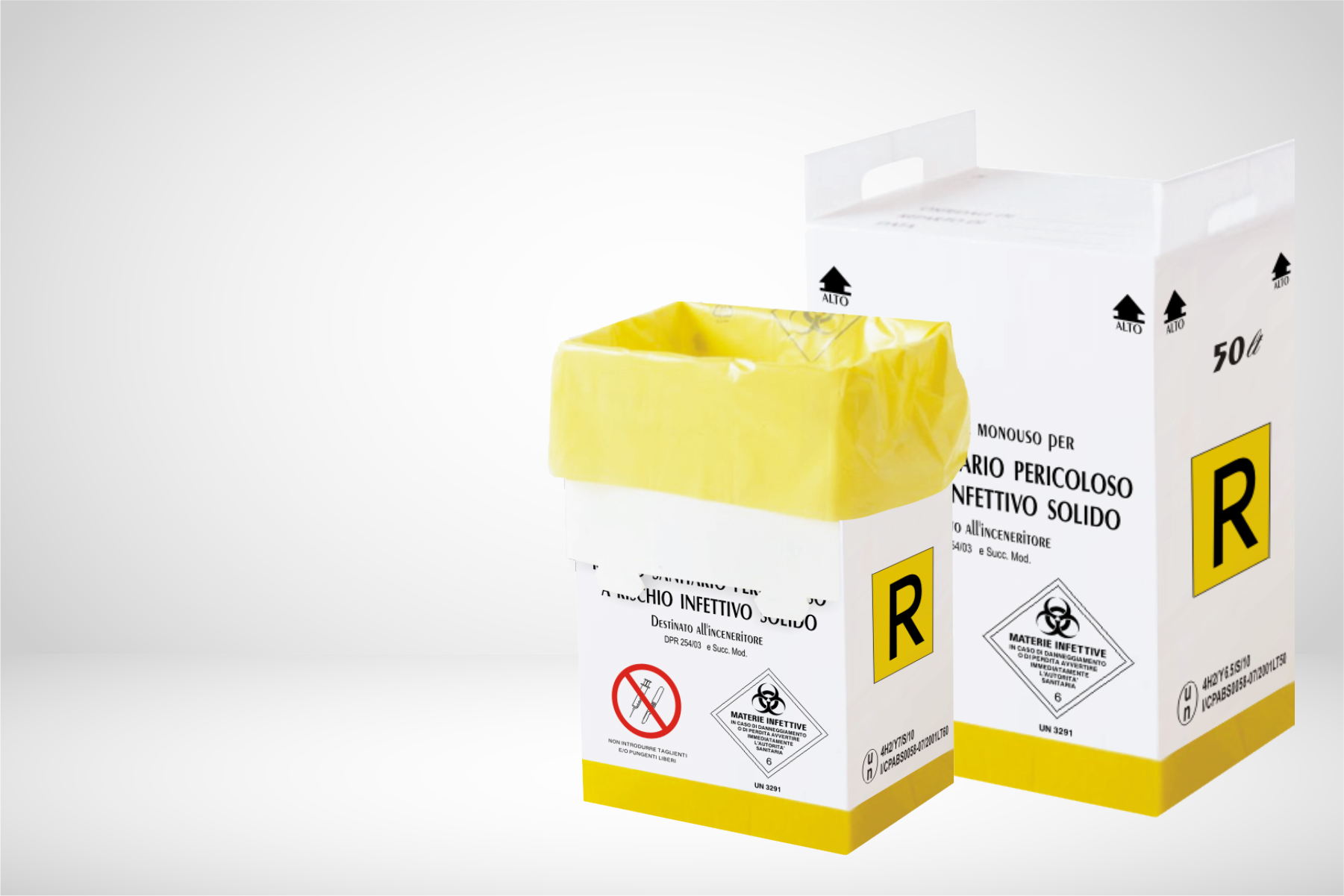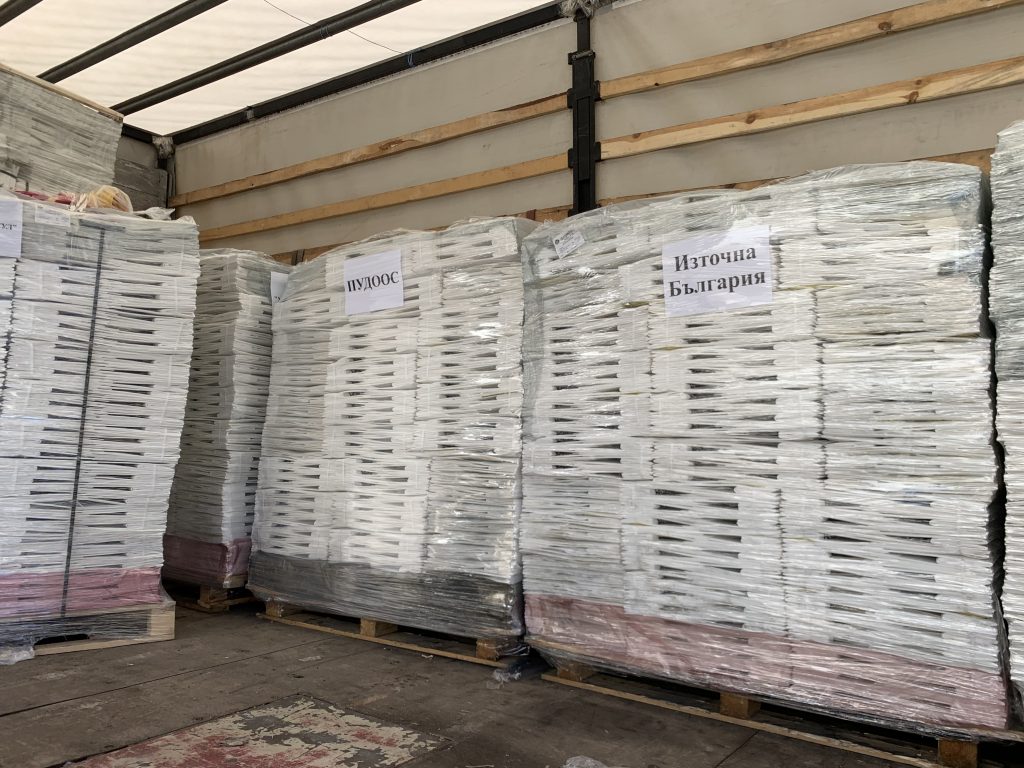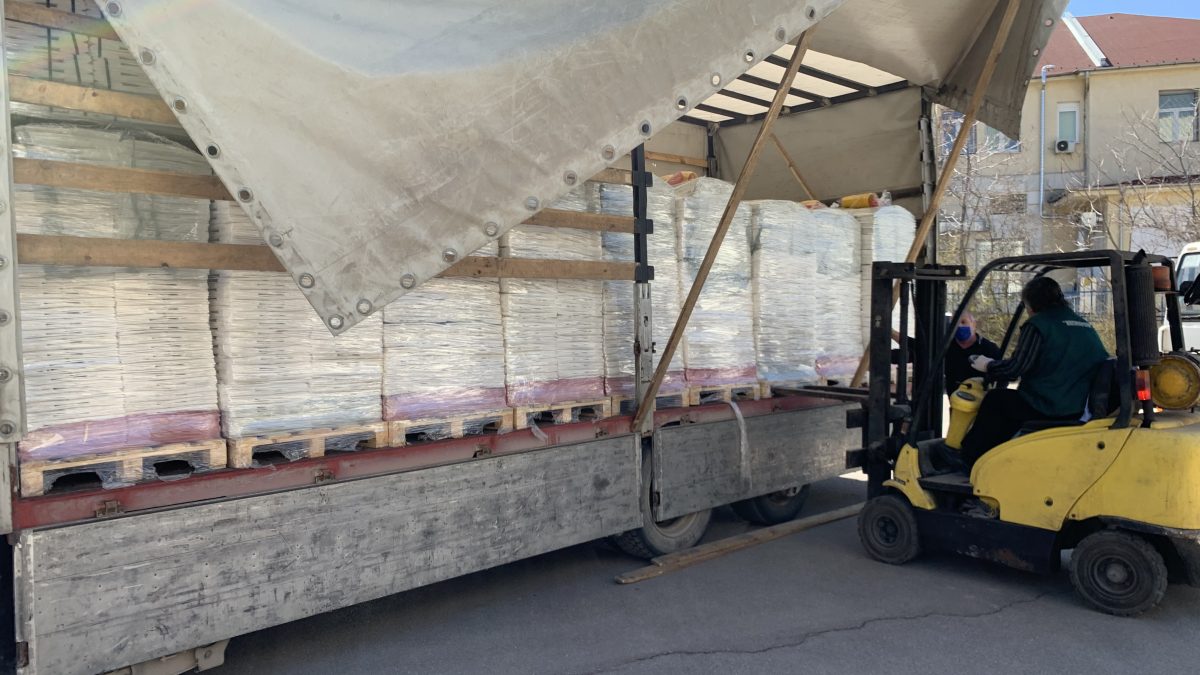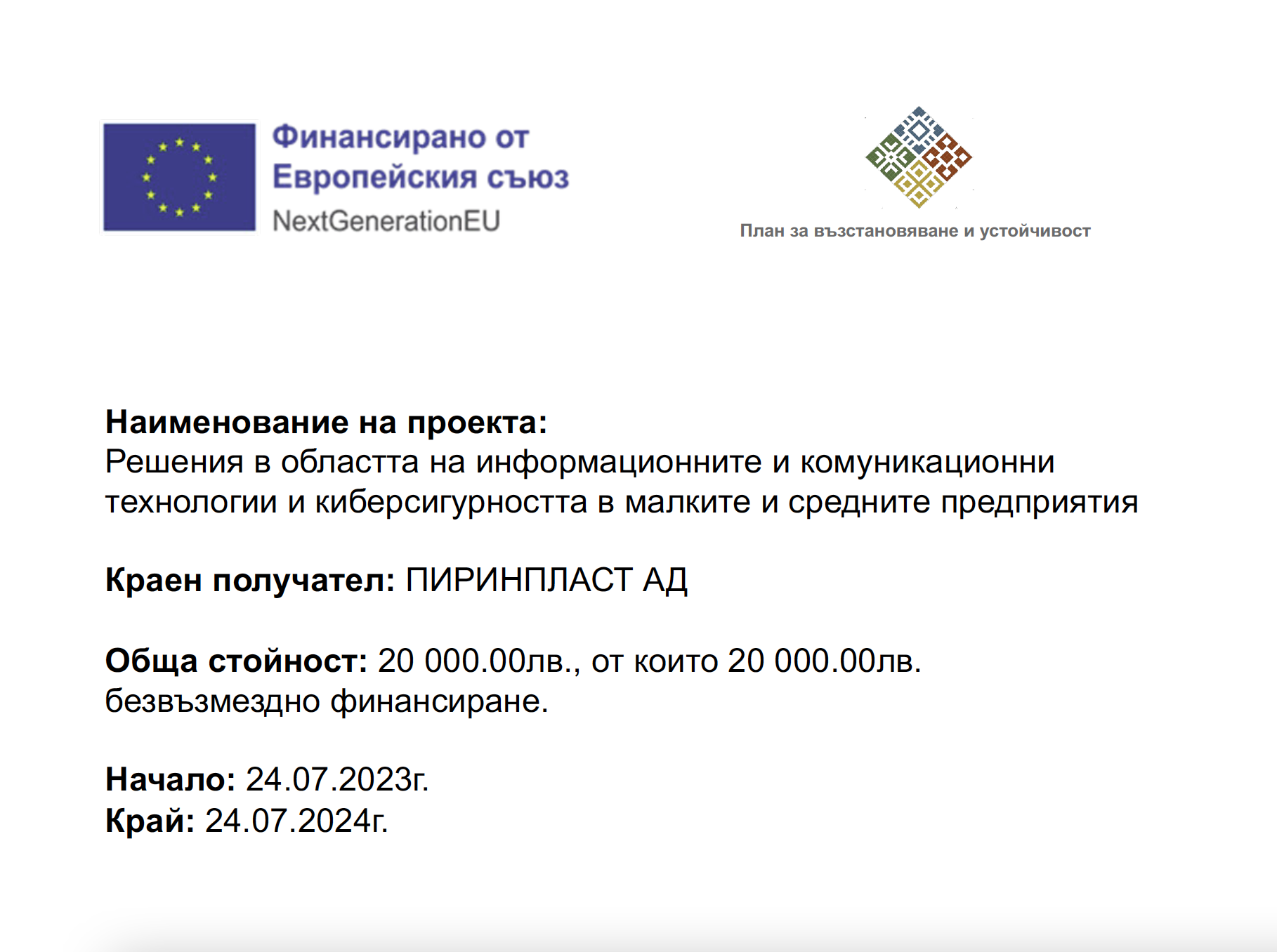
Pirinplast donates 5000 medical waste containers to hospitals in Bulgaria
April 3, 2020
Biodegradable utensils
September 17, 2020The donation and its distribution
Two weeks ago, a truck full of more than 5000 medical waste containers were donated to hospitals in Bulgaria.
The Minister of Environment and Water and the CEOs of the hospitals accepted the donation in front of Alexandrovska Hospital on 08.04.2020. It was then immediately distributed to the hospital facilities. This event suddenly revealed how great the need for such containers is in Bulgarian hospitals. They were distributed very quickly to come into use immediately and to protect especially the medics.
The lack of medical waste containers in Bulgarian healthcare
The medical waste containers, which are produced at the Pirinplast plant in Gotse Delchev, are mainly exported to Europe. The Italian market, for example, has always been the leading market for Pirinplast. Companies from other countries in Europe, such as France, also place orders for containers for different types of waste.
Unfortunately, it is noticed that in Bulgarian hospitals there is still no practice to use containers for specific storage of infectious and acute waste. This is also noticeable in the way garbage is collected separately in Bulgaria. But the benefits of introducing such containers for different types of waste at this critical time are many. At issue here is the need for a stricter national waste collection plan in hospitals and industrial firms.
Why should they be implemented in Bulgarian healthcare and industrial companies?
Waste from healthcare facilities, laboratories and from coronavirus patient-related activities should be handled and treated in accordance with EU waste management legislation (in particular Directive 2008/98/EC on waste and more specifically Articles 12, 23, 24 and 25 on hazardous waste) and national regulations (applicable to this category of infectious waste), taking into account the most up-to-date guidance provided by the European Centre for Disease Prevention and Control (ECDC) and national health authorities.
Member States should ensure proper capacity planning for the treatment and, where necessary, storage of medical waste. In the event of treatment being interrupted due to the lack of a dedicated disposal or incineration facility for medical waste, it is of paramount importance that the waste is safely stored temporarily until the capacity issue is resolved. Storage should be in sealed containers in secure areas where access is restricted to authorised personnel only
The EPA's regulations have not changed despite the coronavirus situation. They are still not respected by Bulgarian institutions.
How is the West doing?
In the West, on the other hand, they have a sector that specifically works on dealing with the huge amounts of hazardous waste. Its storage and handling happens specifically through a coordinator.
According to Canadian hazardous waste expert Terry Guimond, dumping materials in the wrong place, in the wrong packaging or container can be risky and costly. One concern when it comes to improper waste disposal in healthcare is the risk of workplace injuries. The Green Care community quotes Terry Guimond, "I hear very often of environmental/housekeeping employees getting cut with scalpels or poked with needles because they were in the trash and should have been disposed of in a sharps container.
People working in landfills or recycling sorting plants can get caught up in improper disposal situations like this. Also in final treatment facilities where they face the same risks," says Terry.
Reviews, application and benefits
However, the hospitals that got a good number of these medical waste containers were extremely satisfied with their quality. But most of all, the fact that they limit contamination.
Let us recall that the campaign targeted the hospitals that are at the epicentre of the outbreak in Bulgaria and which are in the greatest need. These containers are made specifically for acute and infectious waste and are certified according to European standards for the transport of dangerous goods (ADR).

After using the containers, hospital managers said they were extremely suitable for the job. Handy in the intensive care unit, i.e. in the intensive care units. According to them, having a plastic container in which the plastic bag with the contaminated waste is placed protects the staff. They also said that transporting the garbage out of the ward and temporarily storing it is easier and safer.
The benefits of more rigorous collection of different types of waste through this type of container will allow hospitals to operate in a significantly more secure environment. In an emergency situation where all activities are reduced to limiting the spread of the COVID-19 virus, the separation of hazardous hospital waste from the rest of the stream and its specific storage are part of the basic measures that are necessary to prevent the spread of the infection.
A better future
Responsible institutions should consider implementing future environmental safety regulations. As we have seen, the benefits of regulations for the stricter collection of different types of waste by means of this type of container are many. These institutions are obliged to introduce regulations to protect the environment and the working environment.
When it is known what the waste is - whether it is recyclable, biomedical or chemical - it can be assessed how best to store it to reduce the risk to staff and patients. This also ensures that waste is collected and packaged in accordance with EU regulations, while ensuring a safe and healthy planet.
The Pirinplast team is constantly working to help its industrial customers be more resilient in the face of a global pandemic. We aim to focus on limiting the spread of the virus and restoring the Bulgarian economy.




